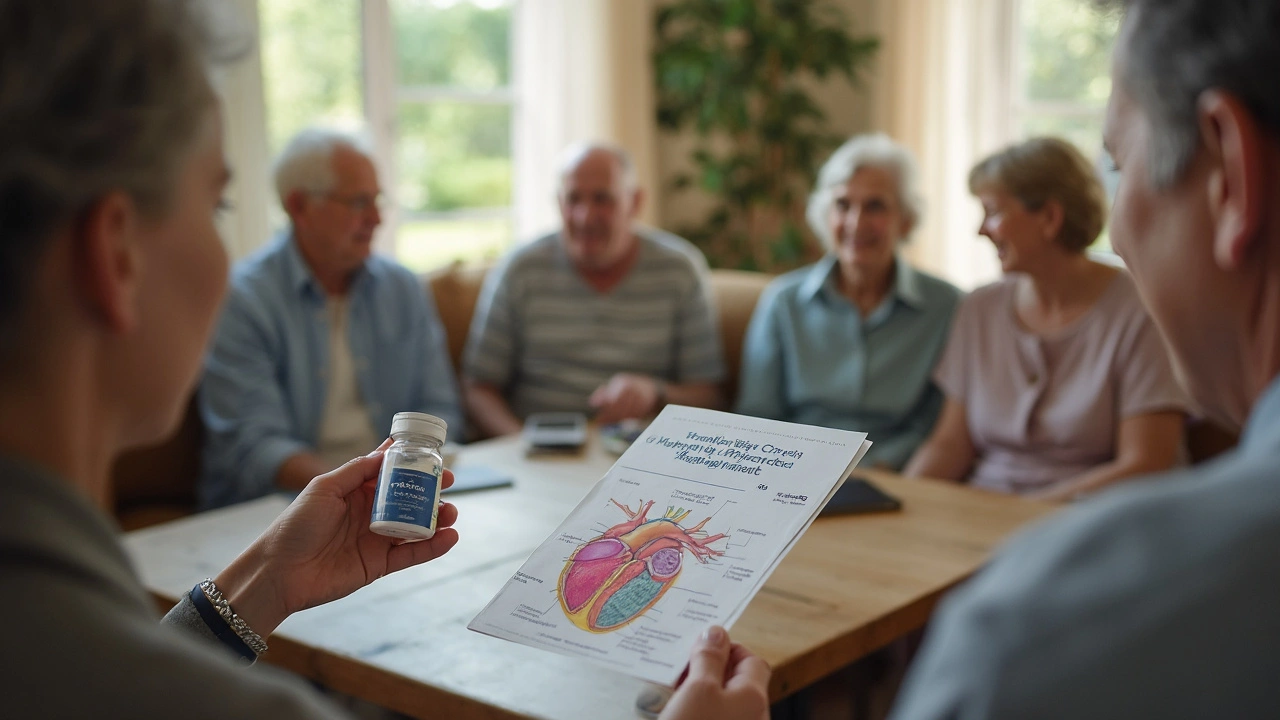Statins: How They Work, Side Effects, and Practical Tips
If your doctor suggested a statin, you probably want a clear, no-nonsense explanation. Statins are medicines that lower LDL (“bad”) cholesterol by blocking an enzyme your liver uses to make cholesterol. Lower LDL cuts the risk of heart attack, stroke, and other artery problems.
Common statins you’ll hear about are atorvastatin, simvastatin, rosuvastatin, and pravastatin. Some are stronger at lowering LDL than others. Your doctor picks one based on your cholesterol levels, heart disease risk, other medicines you take, and cost.
How to use statins safely
Take statins exactly as prescribed. Many people do best on a single daily dose. Older advice said to take some statins at night, but newer options (like atorvastatin and rosuvastatin) work well anytime. Don’t stop suddenly—stopping can quickly raise your cholesterol again.
Before starting, your doctor may check a baseline liver test and lipid panel. Follow-up lipid tests help see if the dose is working. If you get unexplained muscle pain or dark urine, contact your provider; they may check a creatine kinase (CK) level and review drug interactions.
Watch out for strong interactions. Grapefruit juice, certain antibiotics (like clarithromycin), some antifungals, and drugs such as cyclosporine can raise statin levels and increase side effects. Always tell your doctor and pharmacist about herbal supplements and every prescription you take.
Common concerns people ask
Will statins give me muscle pain? Some people do experience aches or weakness. Often the problem is mild and can be managed by lowering the dose, switching to a different statin, or checking for interacting drugs. Serious muscle damage is rare.
Can statins affect my liver or memory? Mild liver enzyme rises sometimes happen; serious liver injury is rare. Memory complaints have been reported, but large studies don’t show lasting cognitive harm. If you notice memory changes, report them and your doctor can adjust treatment.
Do statins raise diabetes risk? There’s a small increase in blood sugar for some people on statins, but the heart protection usually outweighs this risk. If you’re prediabetic, your doctor will watch your glucose and encourage lifestyle steps to lower that risk.
Practical tips: compare generic options to lower cost, take the pill at a consistent time, keep a list of all meds for your provider, and pair statins with diet and exercise to get better results. If your LDL stays high despite a statin, ask about adding non-statin options like ezetimibe or newer injections (PCSK9 inhibitors) for high-risk cases.
Statins are a powerful tool to protect your heart. Use them with regular monitoring, report side effects early, and keep working on lifestyle changes—those three steps give you the best chance to stay healthy without unnecessary problems.

Crestor: Statin Benefits, Side Effects, and What You Need to Know
- May, 26 2025
- Daniel Remedios
- 12 Comments
Crestor is one of the most commonly prescribed statins for lowering cholesterol and protecting heart health. This article explains how Crestor works, what the science says about its effectiveness, what side effects people might experience, tips for taking it safely, and answers to common questions. It’s a clear, practical guide for anyone thinking about or already taking Crestor.
